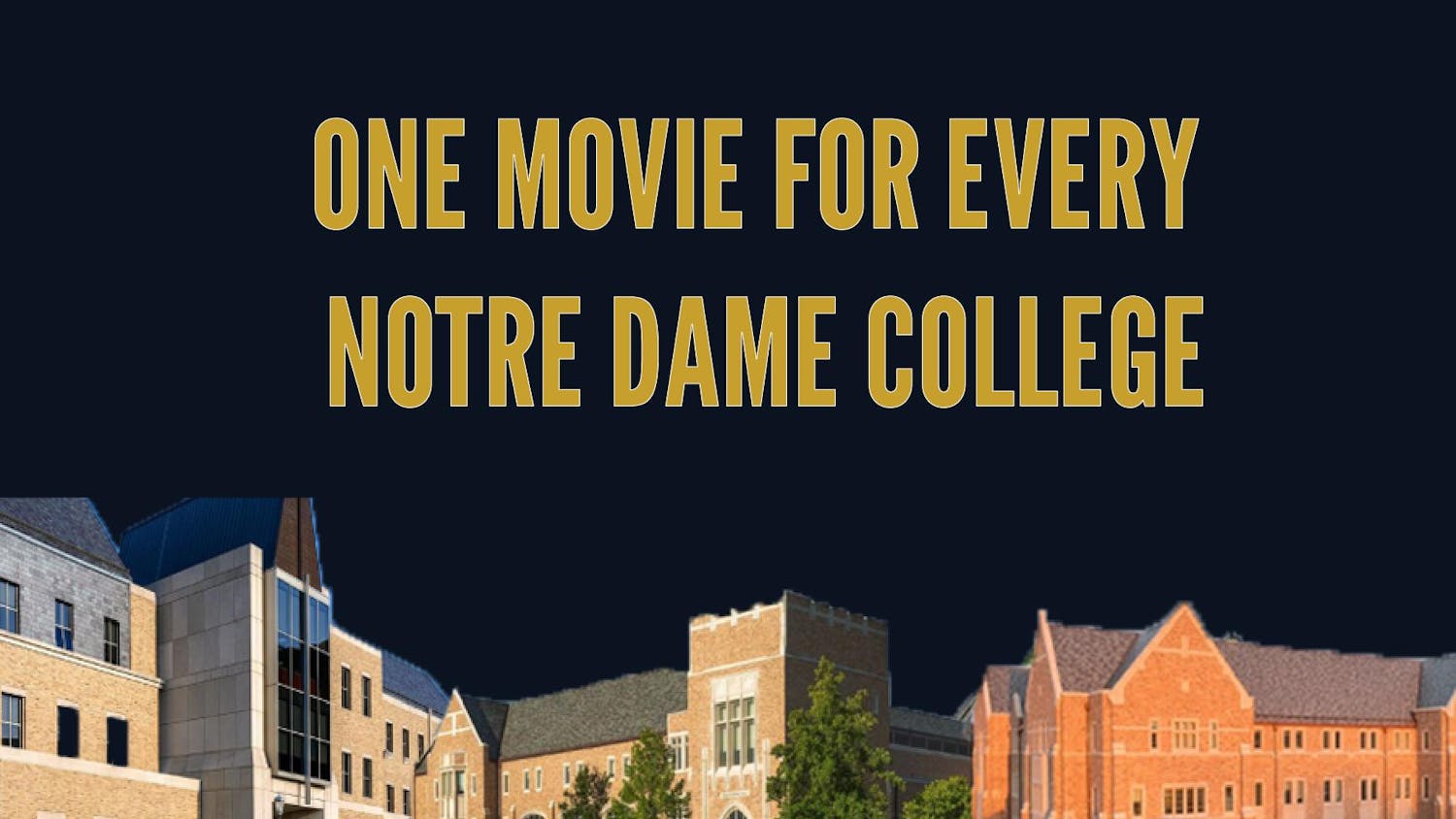The English oratorio "The Messiah," originally composed by George Frideric Handel, held well to the tradition of the composition and was performed excellently by Notre Dame's official concert choir, the Chorale.
In a modern context, only the first of three parts of "The Messiah" are performed, and the Chorale did the same, replacing the final song of the first part with the most famous song of "The Messiah," the ‘Hallelujah' chorus, which brought the entire crowd to their feet and which earned a solid amount of applause following the show.

Handel composed "The Messiah" in 1741 and revised it throughout his life. It premiered in Dublin, with Handel himself playing the harpsichord for the performance.
The oratorio, which is often performed around Christmas, utilizes gospel passages taken from the King James Bible to celebrate the prophecies and birth of Jesus, set to polyphonic choral pieces accompanied by arias and recitatives. The passages come primarily from the Old Testament, focusing on prophecies of the birth of a savior; the lyrics were composed by Charles Jennens, who borrowed mainly from the King James Bible, except for the Psalms.
Originally, "The Messiah" was composed in three parts. The first, which is the most frequently performed part, deals mainly with the birth of Christ, and the prophecies that predicted the coming of a savior. The lyrics for this part come mainly from Isaiah and are supplemented by passages from Haggai and Malachi.
The second part dealt with the passion, death, resurrection and ascension of Jesus, and was meant to conclude with the famous ‘Hallelujah' chorus. The third part then deals with prophecies of the second coming, mainly from the book of Revelation.
The star of the show was certainly senior tenor Joshua Diaz, who performed the first recitative, "Comfort ye, my people," and the first aria, "Every valley shall be exalted." He finalized his performance by singing the final aria before the "Hallelujah" chorus, ‘Thou shalt break them with a rod of iron,' and he received the longest ovation after this capstone.
His voice was powerful and clear, two of the most important parts of performing a composition like "The Messiah," which has lyrics that can become incomprehensible if not sung well. The lyrics serve as one of the main connections between the audience and the performers, and Diaz perfectly accomplished this task.

The most impressive part of the show, particularly from the aspect of a college student, was that it has the ability to hold the interest of its listeners. Unlike many compositions from the time period, "The Messiah" is sung in English, which helps to keep the interest of those listening. Its music is also lively enough to keep the enjoyment level high, even for those who don't have an affinity for classical music.
"The Messiah" is likely performed around Christmas because of the upbeat nature of the music, by which one cannot help but be uplifted. Though it is to see the Chorale's excellent performance of the Handel's most famous work, this reviewer highly recommends finding a CD of the performance to truly get oneself into the Christmas spirit.












